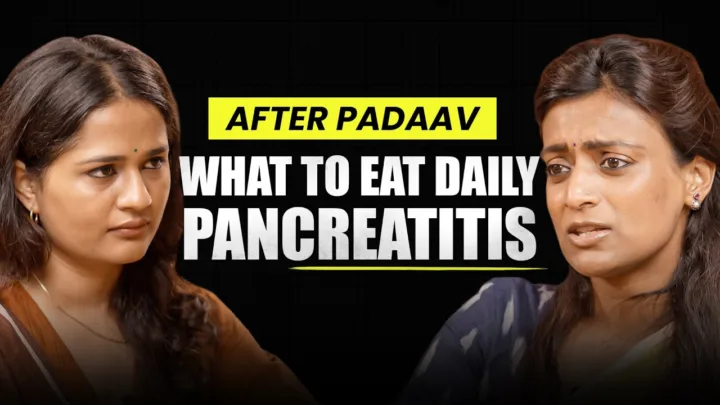Allergic rhinitis is one of the most common chronic conditions affecting millions of people globally. According to estimates, approximately 400 million individuals suffer from this condition, with 40% of children and 10-30% of adults affected. Despite its prevalence, allergic rhinitis significantly impacts the quality of life, making awareness and treatment essential.
In this blog, we will discuss allergic rhinitis, its symptoms, causes, and Ayurvedic approaches to managing this condition effectively.
What is Allergic Rhinitis?
Allergic rhinitis is an allergic reaction that primarily affects the nasal passages. It occurs when the immune system overreacts to allergens, such as pollen, dust, or pet dander. In Ayurvedic terminology, it is known as Nasa Roga or Pratishyay Roga, which encompasses conditions affecting the nasal cavity.
Common Symptoms of Allergic Rhinitis
Allergic rhinitis symptoms can range from mild to severe, often interfering with daily life. Key symptoms include:
- Sneezing: Frequent, uncontrollable sneezing episodes.
- Itchy Nose and Palate: Persistent itching in the nose and the roof of the mouth.
- Runny Nose (Rhinorrhea): Continuous discharge of a clear fluid from the nose.
- Nasal Congestion: A blocked or stuffy nose, making breathing difficult.
- Watery, Itchy Eyes: Redness and watering of the eyes.
- Postnasal Drip: Mucus dripping down the back of the throat, causing irritation.
These symptoms are often mistaken for the common cold, but unlike a viral infection, allergic rhinitis does not typically involve fever.
Types of Allergic Rhinitis
Allergic rhinitis is classified into two types:
- Seasonal Allergic Rhinitis: Occurs during specific times of the year, such as spring or fall, due to pollen or other seasonal allergens.
- Perennial Allergic Rhinitis: Present year-round, triggered by allergens like dust mites, pet dander, or mold.
Causes of Allergic Rhinitis
The primary cause of allergic rhinitis is a hypersensitive immune system. Common triggers include:
- Pollen: A leading cause of seasonal allergic rhinitis.
- Dust Mites: Microscopic organisms found in household dust.
- Pet Dander: Skin flakes or hair from animals.
- Mold: Fungi spores present in damp environments.
- Environmental Factors: Exposure to air conditioners, smoke, or pollution.
Sometimes, the exact cause remains unidentified, a condition termed idiopathic allergic rhinitis.
The Impact of Allergic Rhinitis
If left untreated, allergic rhinitis can escalate into more severe conditions such as asthma. In children, it can lead to frequent school absences due to recurring cold-like symptoms. The chronic nature of this condition can significantly reduce productivity and quality of life.
Modern Medicine for Allergic Rhinitis
Conventional treatment often includes:
- Antihistamines: To reduce sneezing, itching, and runny nose.
- Decongestants: To relieve nasal congestion.
- Nasal Sprays: Steroid-based sprays for symptom management.
While these treatments offer temporary relief, they may not address the root cause of the condition.
Ayurvedic Approach to Allergic Rhinitis
Ayurveda views allergic rhinitis as a result of an imbalance in the body’s systems, often linked to weakened immunity. The holistic treatment focuses on eliminating the root cause and strengthening the immune response. Key aspects include:
1. Herbal Remedies
One effective Ayurvedic medicine is Immbo, which provides fast relief from symptoms. With consistent use over three to four months, it has shown significant, long-term results in reducing allergic rhinitis symptoms and preventing recurrence.
2. Dietary Recommendations
- Avoid acidic and highly processed foods.
- Consume a balanced diet rich in nutrients like Vitamin D3 and B12 to support immunity.
- Stay hydrated and incorporate warm, soothing foods during flare-ups.
3. Lifestyle Modifications
- Maintain a clean and allergen-free living space.
- Practice yoga and pranayama to improve respiratory health.
- Ensure adequate sleep and manage stress levels.
4. Holistic Care
Ayurvedic treatment integrates diet, lifestyle, and herbal medicines to provide sustainable and long-lasting relief. Patients often report a significant reduction in sneezing, nasal discharge, and other symptoms within days of starting treatment. Over time, the condition enters remission, with fewer flare-ups even during allergen exposure.
Long-term Benefits of Ayurvedic Treatment
Patients undergoing Ayurvedic treatment for allergic rhinitis often experience:
- Sustainable symptom relief.
- Improved quality of life.
- Reduced dependency on medications.
- Long-term remission without frequent flare-ups.
Preventive Tips for Managing Allergic Rhinitis
To minimize the risk of allergic rhinitis, follow these preventive measures:
- Identify and avoid specific allergens causing the reaction.
- Use air purifiers to maintain indoor air quality.
- Wear a mask during high pollen seasons.
- Regularly clean and dust your living space to reduce exposure to triggers.
- Strengthen your immune system through a healthy diet and regular exercise.
Conclusion
Allergic rhinitis is a chronic yet manageable condition. While modern medicine offers temporary relief, Ayurvedic treatment provides a holistic approach to address the root cause and ensure long-term remission. By combining herbal remedies, dietary changes, and lifestyle modifications, individuals can lead a healthier, symptom-free life.
If you’re experiencing symptoms of allergic rhinitis and need personalized advice, feel free to leave your questions in the comment section below. Together, we can explore natural and effective ways to manage this condition.






